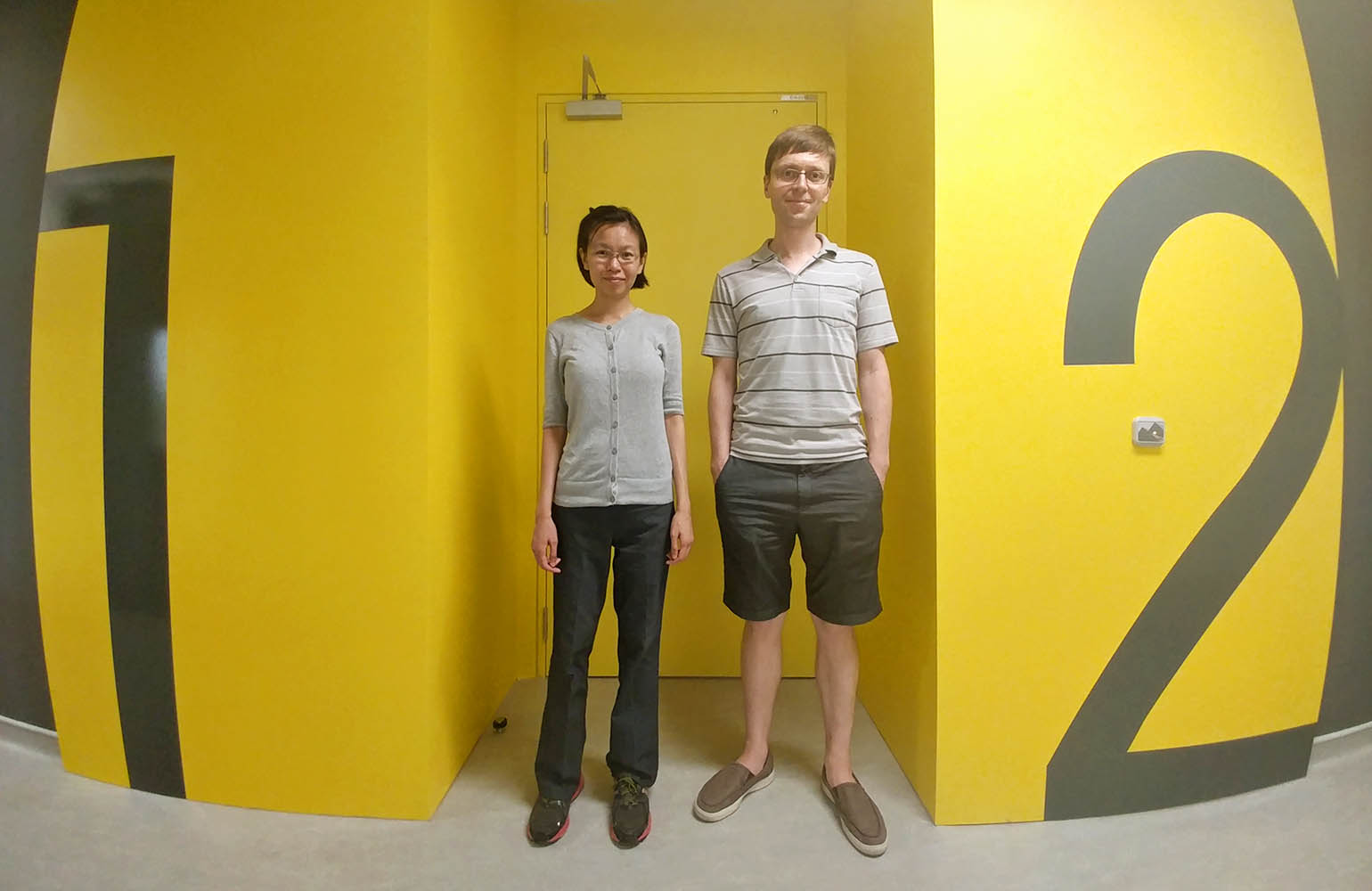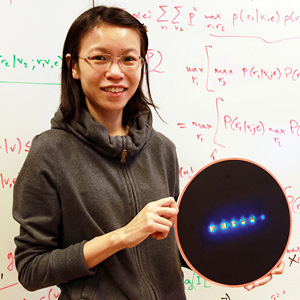Highlights
CQT welcomes two new Principal Investigators
 Loh Huanqian (left) and Travis Nicholson (right) are the newest Principal Investigators at the Centre for Quantum Technologies, each setting up a new research group in experimental quantum physics.
Loh Huanqian (left) and Travis Nicholson (right) are the newest Principal Investigators at the Centre for Quantum Technologies, each setting up a new research group in experimental quantum physics.
This September, Loh Huanqian and Travis Nicholson have joined CQT as Principal Investigators. They are establishing two new research groups in atomic physics, building experiments from scratch in newly-renovated lab space. Both groups are currently looking for PhD students and postdocs to join their projects during this exciting phase – if this could be you, please see the job listings!
The Loh group
Huanqian's group aims to perform quantum state engineering at the single-molecule level, to explore new phenomena in quantum physics and chemistry. Cold molecules in well defined quantum states offer a clean, tunable way to simulate interesting materials like superconductors. Like quantum legos, they can also be used to assemble dream materials not necessarily found in nature but which could have highly desirable properties. Read more
The Nicholson group
Travis's group is interested in using Rydberg dressing of strontium in optical lattices to achieve squeezed states and quantum logic. Ultracold strontium in lattices is the basis for the world's best atomic clocks. Meanwhile ultracold atoms in Rydberg states have realized high-fidelity quantum gates. The goal is to combine these two approaches to achieve a novel, high-fidelity quantum logic scheme. Read more
How they got to here
Huanqian did her PhD at JILA in the United States, where she worked on measurements of the electron electric dipole moment in the group of Nobel laureate Eric Cornell. Travis did his PhD in the group of Jun Ye, a physicist at the National Institute of Standards and Technology. His PhD thesis demonstrated the most accurate atomic clock on Earth, which won't gain or lose a second in 15 billion years.
Huanqian is a Singaporean and was previously a CQT research fellow. She worked in the group of Dzmitry Matsukevich on molecular ions, and then in the group of Martin Zwierlein at the Masachusetts Institute of Technology on ultracold molecules. These experiences have provided the inspiration for her present work as an NUS President's Assistant Professor. "Right now quantum control of molecules is at a very exciting phase in the atomic physics community, and it means a lot to me to be able to pursue this big frontier back home," she says.
Travis, an American also appointed as an Assistant Professor in the NUS Department of Physics, had recently completed his postdoc at the MIT-Harvard Center for Ultracold Atoms, working with Mikhail Lukin and Vladan Vuletic on slow light. Having experienced two physics frontier centres in the US, he found CQT offered a similarly attractive set up. "There's only a handful of honest-to-goodness centres in the world that have several experimental groups doing this kind of physics and doing it well. It's wonderful to be in such an intellectually vibrant environment," he says. He appreciates some of Singapore's other attractions too – "I really like the food here. It's so incredibly good!"
Learn more
Related Stories
 | Meet a CQTian: Loh Huanqian April 18 2014 |






